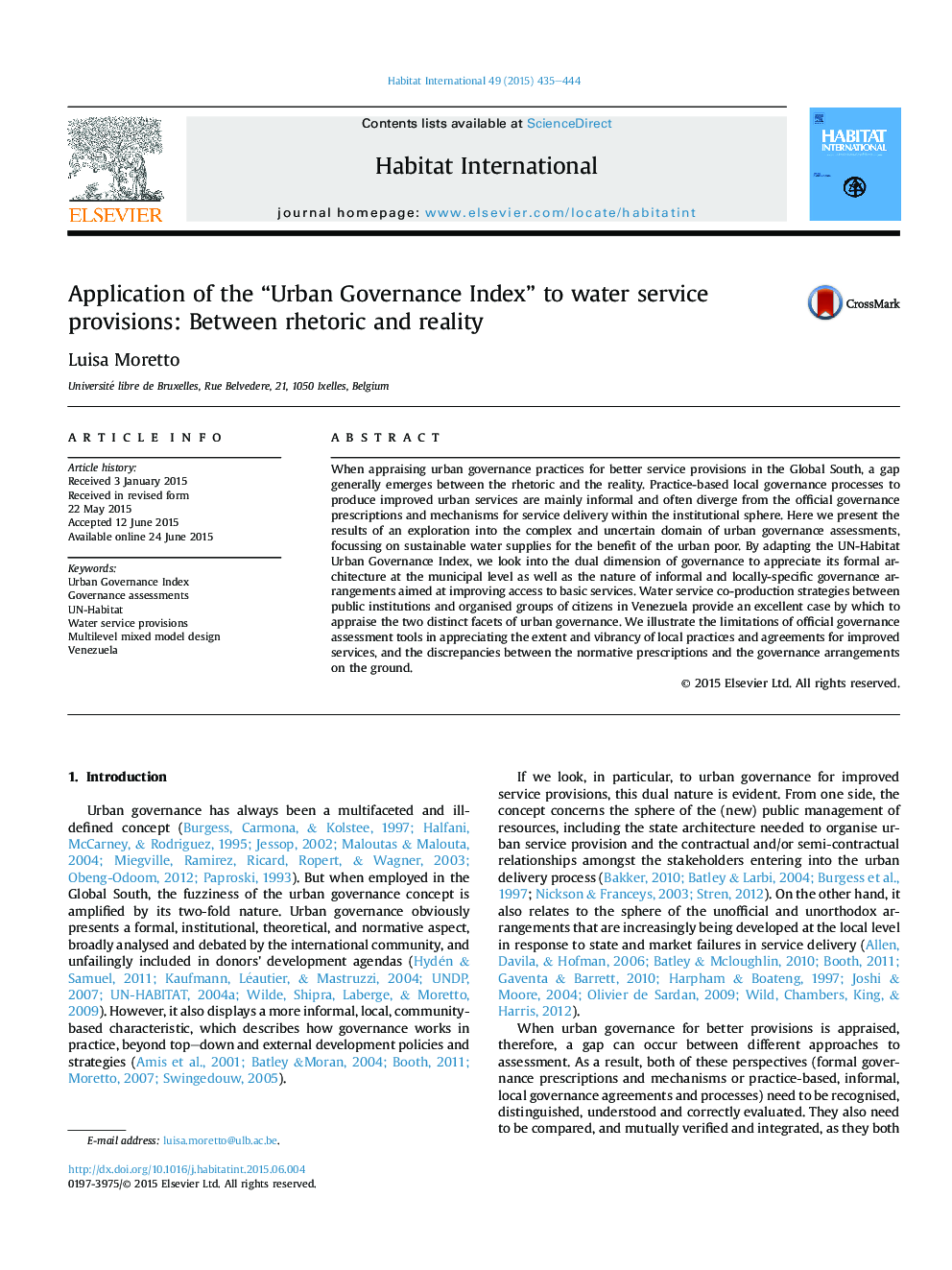| Article ID | Journal | Published Year | Pages | File Type |
|---|---|---|---|---|
| 7456288 | Habitat International | 2015 | 10 Pages |
Abstract
When appraising urban governance practices for better service provisions in the Global South, a gap generally emerges between the rhetoric and the reality. Practice-based local governance processes to produce improved urban services are mainly informal and often diverge from the official governance prescriptions and mechanisms for service delivery within the institutional sphere. Here we present the results of an exploration into the complex and uncertain domain of urban governance assessments, focussing on sustainable water supplies for the benefit of the urban poor. By adapting the UN-Habitat Urban Governance Index, we look into the dual dimension of governance to appreciate its formal architecture at the municipal level as well as the nature of informal and locally-specific governance arrangements aimed at improving access to basic services. Water service co-production strategies between public institutions and organised groups of citizens in Venezuela provide an excellent case by which to appraise the two distinct facets of urban governance. We illustrate the limitations of official governance assessment tools in appreciating the extent and vibrancy of local practices and agreements for improved services, and the discrepancies between the normative prescriptions and the governance arrangements on the ground.
Keywords
Related Topics
Social Sciences and Humanities
Social Sciences
Development
Authors
Luisa Moretto,
